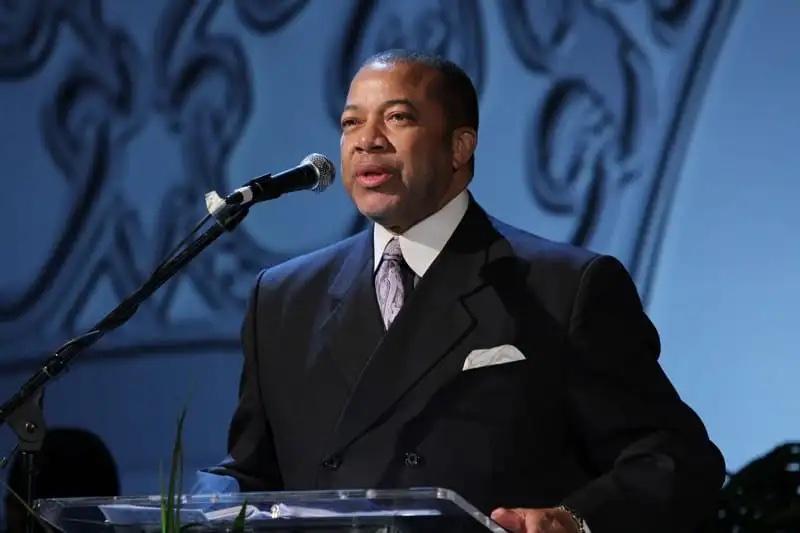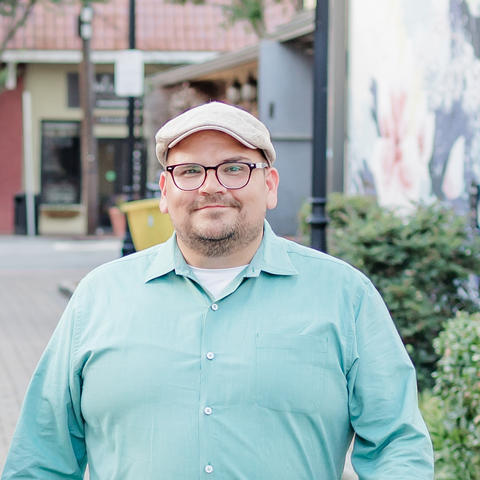
Section Branding
Header Content
Georgia Today: More police accountability, more delays at Plant Vogtle, the Bananas hit the road
Primary Content
On the Friday Feb. 17 edition of Georgia Today: Lawmakers want more police accountability, more delays at Plant Vogtle, and the Savannah Bananas hit the road.

Peter Biello: Welcome to the Georgia Today podcast from GPB News. Today is Friday, Feb. 17. I'm Peter Biello. On today's episode, Democratic lawmakers push for more police accountability, more delays at Georgia Power's Vogtle nuclear power plant near Augusta, and the wildly popular Savannah Bananas Baseball team is back and hitting the road. We've got the details on their tour. These stories and more coming up on this edition of Georgia Today.

Story 1
Peter Biello: Georgia Power is once again delaying the start up of two new units at its Vogtle nuclear power plant near Augusta — and that delay is going to cost $200 million. Southern Company, the utility's Atlanta-based parent company, announced the delays, along with its yearly corporate earnings yesterday. Unit 3 could begin commercial operation this May or June — not the end of April, its most recent deadline — and Unit 4 could be pushed back as late as March of next year rather than the end of this year. Despite the delays, the company announced strong profits of $3.5 billion for the year.
Story 2
Peter Biello: Lawmakers advanced two key pieces of Gov. Brian Kemp's tax cut proposals yesterday. The House Ways and Means Committee sent to the full chamber a plan to give tax filers $1 billion in tax refunds and a ratification of Kemp's emergency decision to waive state gas taxes for 10 months, beginning last spring.

Story 3
Peter Biello: Condolences and tributes are pouring in from leaders across the state for Atlanta civic leader and businessman Thomas Dortch Jr., who died Wednesday. George made history as the first Black man to be chief administrator for a U.S. senator, Sam Nunn. He was the former CEO of the 100 Black Men of America, a nonprofit mentoring organization in 1974. He became the first associate director of the Georgia Democratic Party. Congresswoman Nikema Williams, who introduced a bill to award Dortch a Congressional Medal last week, echoed many tributes when she tweeted she is heartbroken by his passing. Thomas Dortch was 72 years old.
Story 4
Peter Biello: Three Democratic representatives have introduced a series of bills aiming to promote police accountability. Democrat Rep. Viola Davis of Stone Mountain said the bills were inspired by the death of Tyre Nichols after Memphis police beat him.
Viola Davis: There has been a number of high-profile cases that has caused a lack of trust in our law enforcement, especially within the Black community.
Peter Biello: House Bill 107 would require law enforcement officers to wear body cameras during interactions and release the videos in some situations. It also requires the attorney general to publicly report use of force by police annually. And it would remove qualified immunity for police officers. House Bill 112 would pave the way for cities to create citizen review boards for law enforcement. House Bill 113 would require basic training for police officers to teach verbal de-escalation techniques and use non-lethal force. It also would require training to recognize mental health issues. Gerald Griggs, attorney and first vice president of the Atlanta chapter of the NAACP, said specific policy action is necessary to prevent future cases of police brutality.
Gerald Griggs: After the death of Tyre Nichols, many in this House, including the governor and lieutenant governor, issued tweets. We want more than tweets. We want legislation and action and less thoughts and prayers. These particular bills are that step forward. And so as the Georgia NAACP, we are calling on the swift passage of these bills.
Peter Biello: The lawmakers called for bipartisan support for the bills, but similar bills requiring body camera use have been unsuccessful in the Republican controlled statehouse in past sessions.
Story 5
Peter Biello: The state Senate has advanced a bill to make it easier to prosecute gang crimes in any county. Senators voted overwhelmingly yesterday in favor of a bill to stem what Roswell state senator [and] Republican John Albers calls a gang crisis.
John Albers: Oftentimes, gang members will continue to move around from county to city, etc. and rather than trying to prosecute that in multiple areas, it allows them to consolidate it into one single venue.
Peter Biello: The measure also would increase penalties for felons convicted of certain domestic violence crimes who later possess a gun. The bill now moves to the House for more debate.

Story 6
Peter Biello: A shortage of public defenders in Georgia is leaving attorneys overburdened and those accused of crimes waiting for a proper defense — and that wait can last for months. The problem has been long in the making and will take longer to solve. For a look at the extent of the problem, we turn now to Jason Sheffield. He's the former president and current board member of the Georgia Association of Criminal Defense Lawyers. Thanks very much for speaking with me.
Jason Sheffield: Good afternoon. Nice to be here, Peter. Thank you.
Peter Biello: Let's start by unpacking who is harmed by a shortage like this. First off: the defendants. What happens when someone's accused of a crime and needs a public defender but either has trouble getting one or the — the public defender assigned to them has too many clients and maybe not enough time to focus on them?
Jason Sheffield: The person accused is absolutely at the first level of harm that we're experiencing statewide in the public defender system. But there's more than that. There's the judges who are harmed, and there's the system itself. If you think about, starting with the people who are accused, these are individuals who are indigent. When you are accused of a crime, the state brings all of their power, all of their investigative power, all of their authority against you. And it triggers certain rights for these people who are accused. To have someone be there when you're questioned, to have someone assist you when you're trying to get out of jail on bond, to have someone explain the charges to you — these are the basic fundamental rights that are being denied because the system's in crisis.
Peter Biello: You mentioned judges are harmed by this. Can you tell us how?
Jason Sheffield: A judge wants to do the right thing. Where you don't have adequate representation for persons accused of a crime who are indigent, the judges hear nothing from the other side, and the judges begin to wonder, "Am I getting the full story? Am I hearing the full truth?" Judges cannot make informed decisions without the help and assistance of a criminal defense lawyer.
Peter Biello: What resources do public defenders need now that perhaps they used to have but don't anymore?
Jason Sheffield: Being a public defender is a very challenging job for many reasons. It requires that you devote your time to people who don't have the resources to give you, as an attorney, to help in their defense. So you are totally reliant on the state, the Georgia Public Defender Council (GPDC) and/or the county to provide you with the resources so that you can do a good job. And what a good job looks like in the world of criminal defense is: an investigator, an office with printers and paper. Historically speaking, GPDC has partnered with the state and has partnered with the Georgia Association of Criminal Defense Lawyers to always do their best to fund and to educate these public defenders across the state. But something changed that so fundamentally undermined the efforts of public defenders that they began to feel unappreciated, unsupported, and then their offices were taken away. Then their printers were taken away. And paper was taken away. The camaraderie disappeared and people started to feel like they didn't have a home to build their case within to protect these people accused.
Peter Biello: And you're talking about public defenders across the state?
Jason Sheffield: I'm talking about public defenders across the state that have been financially supported by GPDC. Under new leadership, they started having things taken away, in a way that appeared to be politically motivated.
Peter Biello: Well, let me ask you, what political constituency would be pleased by that? Why is that a good thing for some people?
Jason Sheffield: Obviously, we're always concerned in Georgia about our budget. We're always concerned about programs, were concerned about protecting citizens. But there can be no more fundamental protection than a citizen's right and access to the courts and to an attorney. And so when you have the governor encouraging cuts and you have the director then making those cuts to an organization that is already underfunded, you begin to chip away at the spirit of the people who provide protections for indigent persons statewide.
Peter Biello: Lawmakers have discussed pay raises for some in the public defender world. Would that help?
Jason Sheffield: The current issue in Georgia's public defense system is that there aren't enough public defenders because they feel abused by the agency, the state agency that's traditionally supported them and help them. We would like to have our office back. We'd like to have a printer. We'd like to be able to work together and not from home. We would like our appellate division to not be decimated. Now that appellate division is back, but the appellate division was dismantled. And several lawyers who specialize in the type of issues that trial lawyers need to know as they're heading into trial — those lawyers were terminated. So you didn't have the backup. You didn't have the kind of information that was available before. It's as if the state agency expected a bridge to stay solid, but took away the pillars from underneath the bridge one by one and is surprised when that bridge collapses.
Peter Biello: For people accused of crimes and waiting so long for defense to become available — proper defense to become available — is there a short-term solution so that these people aren't waiting in jail for so long, like bringing lawyers out of retirement to quickly help address the issue, or something else I'm not thinking of? What do you think?
Jason Sheffield: The solution seems to be to start with the state and for the state to acknowledge — and by the state I mean GPDC — to acknowledge that they need to be properly funded and they need to lobby the Legislature for appropriate funding. If you look at, as an example, what's happened most recently with the ARPA funds, the rescue funds that had been given to Georgia in the tune of about $100 million — maybe a little bit more than that — 85 to 90% of that was given to prosecutors and judges. The rest of it was given to public defenders. So now prosecutors have more people to prosecute crimes. They have more victim advocates to assist with the victim issues in the case. And judges are ready to try cases. But it's like an entire lane of cars ready to start in the Indy 500 and none of them have tires. The tires, of course, are the public defenders that you need to make the system move forward — the cases move forward. Why did they only get a small percentage of those funds? I don't know. But that just shows an imbalance in the type of thinking that has become systemic in our Legislature and in our state funding agencies.
Peter Biello: Jason Sheffield is the former president and current board member of the Georgia Association of Criminal Defense Lawyers. Thanks so much for speaking with me.
We reached out to Omotayo Alli, the Executive Director of the Georgia Public Defender Council. Through a spokesman, she declined our request. But the Georgia Public Defender Council did send a statement, part of which reads as follows: "Pre-2020, GPDC regularly furloughed attorneys statewide for weeks each year to maintain its budget. In 2020, the agency relocated to state-owned office space rather than furloughing attorneys, and there have been zero furloughs since Executive Director Alli’s appointment. We understand GACDL may be unhappy with GPDC as circumstances require us to bring training and professional development in-house and reinvest in our own capacity rather than contracting with private groups."

Story 7
Peter Biello: The Savannah Bananas baseball team takes to the field tonight in West Palm Beach, Fla., to begin their 33-city tour across the country. GPB's Benjamin Payne reports.
Benjamin Payne: This is the first year in which the team will play nothing but Banana Ball: their signature, no-holds-barred brand of baseball featuring highly unorthodox rules — rules like if a fan catches a foul ball, the batter is out. Bananas owner Jesse Cole.
Jesse Cole: There's going to be a huge addition of trick plays and more entertainment and more excitement and a faster game. Our players are training to be able to even strike out guys in less than 15 seconds. And then to see the demand: I mean, now there's over 500,000 people on a waitlist just to get tickets.
Benjamin Payne: To help meet the sky-high demand. Cole says he plans to announce more games later in the year. The home opener in Savannah is set for a week from Saturday and next month Bananas will play a squad of retired Major League Baseball players. For GPB News, I'm Benjamin Payne in Savannah.
Story 8
Peter Biello: A day after Bally Sports named a new Atlanta Braves play-by-play broadcast announcer, former Georgia Tech broadcaster Brandon Gaudin, the team named three finalists for a new in-stadium announcer. The public has until Monday at noon to vote for these potential in-stadium voices.
Larry Gardner: And now the starting lineup for your Atlanta Braves, led by the manager: No. 43, Brian Snitker.
Kevin Kraus: Leading off, playing right field: No. 13, Ronald Acuna Jr.
Chris Litton: Batting second, playing center field: No. 23, Michael Harris II.
Peter Biello: Larry Gardner, Kevin Kraus, and Chris Litton, all from metro Atlanta are the Braves' top three choices for In-stadium announcer. That's out of 500 voices submitted. The team's home opener is April 6th.
All right, that is it for today's edition of Georgia Today. We appreciate you tuning in. Thanks for staying on top of the news with us. We really do appreciate having you there as a listener. We hope we can also count on you to be a subscriber to this podcast. Just hit the subscribe button; that way, we will be right back with you and your podcast feed on Monday afternoon.
If you like the podcast, leave a review and if you've got suggestions for improvement — there's always room for improvement, isn't there? We'd love to hear from you. Send us an email. The address is GeorgiaToday@GPB.org. And thanks in advance.
I'm Peter Biello. Thanks for listening and have a great weekend.
——
GPB's Georgia Today newsletter hits your inbox on Tuesdays, Wednesdays and Thursdays with top stories from around the state featuring news, politics and more. Subscribe here.



